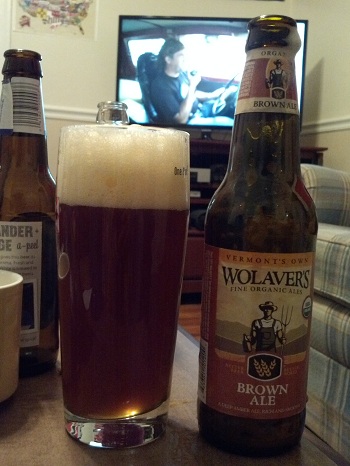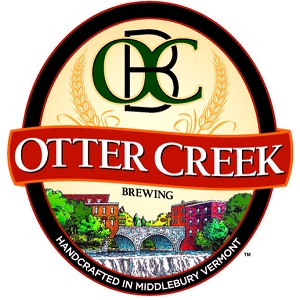Free Range Organic Growth

Brewery and Country of Origin: Otter Creek/Wolaver's of 793 Exchange Street, Middlebury, VT, 05753-1193, USA
Date Reviewed: 12-10-12
Well, here we are. We're only 21 days until the end of 2012 (unless the world ends on December 21st, and yet we still don't have any flying cars, commercial flights to Mars, or 1000 storey buildings. Still, humanity is making a lot of progress. Unfortunately, while our technology and development is growing, our waistlines are too. Some things have been done to help curb this rather sad trend, but clearly not enough. The numbers are quite staggering. In terms of cost alone, obesity inflated medical care costs in America in 2008 by $147 billion. In 2010, that number grew to $191 billion. Today, obesity increases medical care costs by more than $210 billion, or about a quarter of all medical costs. Currently, about one third of all toddlers and small kids are obese. And while the same can be said for adults today, the CDC predicts that at current trends, 40% of American adult men will be obese, while a total 78% will be overweight in the year 2020. And perhaps the most depressing of all is what can be said about preventable diseases and death caused by obesity. Either way, we can safely say that at least in the US, not enough is done about it. So is organic food a possible solution? Well, let's take a look at the industry. Since its passing in 1990, The Organic Foods Production Act serves to strictly outline what can go into foods classified and marketed as being organic. The National Organic Program certifies that foods and beverages are made with at least 95% organic materials (or 100% for more strict certification) by way of organic processes (preservatives, pesticides, etc). This is a Federal effort which is responsible for distributing the green licenses to manufacturers which inform potential buyers that their goods are USDA Certified Organic (the green and white circle on the label). Organic foods have seen a huge rise in popularity and growth, increasing in sales in the US by 19% a year, while normal foods' growth has slowed to only 2% recently. Today, the organic food industry accounts for roughly 4% of all food sales in America. And yet, while all of this growth is promising to independent organic farmers (many of which aren't actually independent at all because companies like Monsanto or Cargill have acquired them recently), there really is no substantial scientific evidence showing that it's worth it. For one thing, no major scientific studies have found that organic foods are safer or healthier for people to eat than normal foods, and customers can expect to spend anywhere between 10 to 70% more for organic foods. The benefits of pesticides and preservatives used in normal foods and crops have been found to nearly mitigate their disadvantages, while organic foods are more susceptible to infestation, microbiological contamination from manure, the negatives of natural pesticides and fungicides (yes, organic foods are still protected), and of course, snootiness. According to the Mayo Clinic, there is no evidence in the last 50 years that suggests organic foods are more nutritious than non organic foods. That said, a normal apple will have to be washed more before it's eaten, while an organic apple won't really. But that aside, it's still good to know that although they may be wasting their money more than anything else, people do care about their health. Unfortunately, organic foods aren't currently the solution. Perhaps they should just invest in a pair of running trainers instead.
Date Sampled: 11-30-12 At: 7 Prescott Place, Allston, Boston, MA, 02134, USA
Beer Style: American Brown Ale
Alcohol by Volume: 5.70%
Serving Type: 12 oz Bottle, 16 oz Stange Glass
Rating: 2.32
 Wolaver's Organic Brown Ale
Wolaver's Organic Brown Ale




